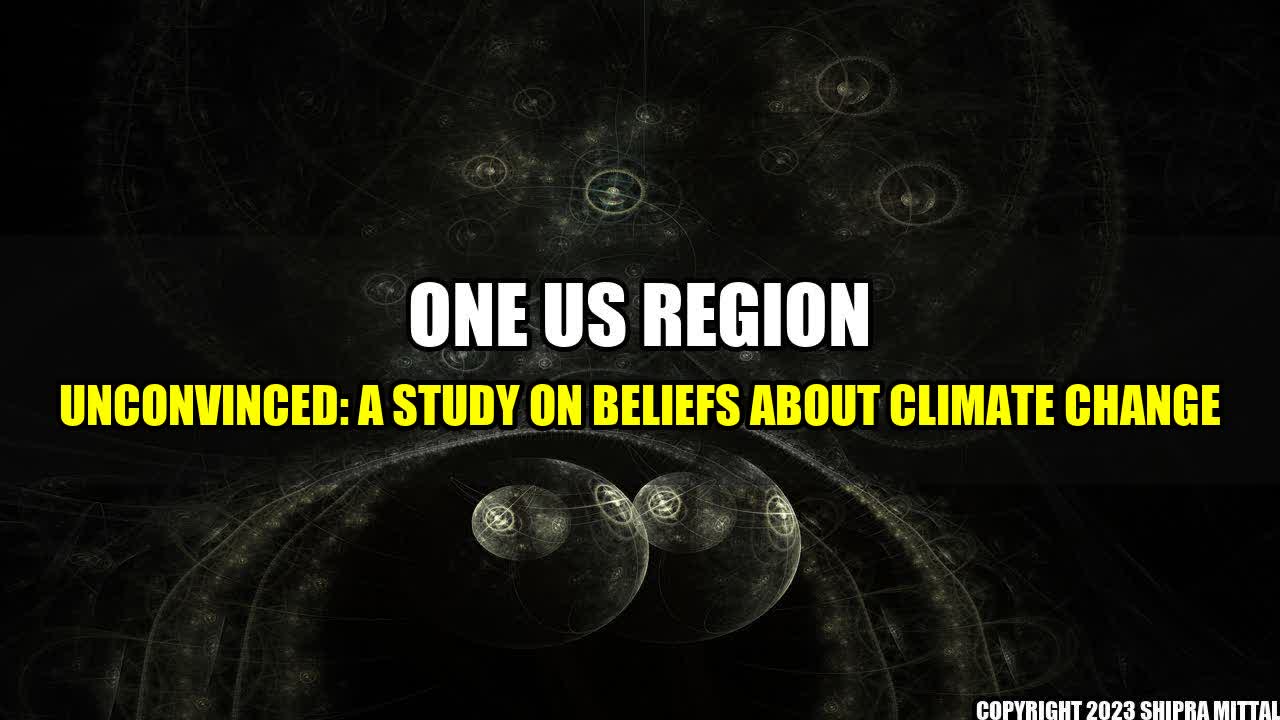Once upon a time, in a small town in the American Midwest, there was a man named Tom. Tom was a hardworking farmer who loved his land and his family. One day, he heard on the news that scientists were warning about the dangers of climate change, caused by human activities like burning fossil fuels. Tom was skeptical. He couldn't see how his simple life could have any impact on the planet. He thought it was just another liberal conspiracy to control people's lives.
This story is not fictional. It is based on real-life examples of people who live in regions of the United States where climate change denial is common. A recent study by a team of researchers from various institutions, including Harvard University and the University of Texas, analyzed data from surveys conducted between 2012 and 2020, involving more than 20,000 adults in all 50 states.
The results of the study were mixed. On one hand, the overall level of agreement with the statement that climate change is mostly caused by human activities increased over time, from 50% in 2012 to 62% in 2020. On the other hand, there were significant differences between states, with some regions having much lower levels of belief in climate change than others.
The researchers identified six factors that influenced people's beliefs about climate change: political ideology, education, income, race, age, and gender. The most significant predictor was political ideology, with conservatives being much less likely to accept the scientific consensus on climate change than liberals.
Some companies that have invested in renewable energy and sustainability initiatives are trying to change the narrative around climate change and promote a more inclusive and pragmatic approach. For example:
- Patagonia, a clothing and outdoor gear retailer, has launched a campaign called "Vote the Planet" to encourage civic engagement and environmental action.
- Walmart, a retail giant, has pledged to become carbon-neutral by 2040 and to protect, manage, or restore at least 50 million acres of land and one million square miles of ocean by 2030.
- Apple, a technology company, has announced that it will be carbon-neutral across its entire supply chain and product lifecycle by 2030.
However, these efforts may not be enough to convince everyone. The study suggests that climate change denial is deeply rooted in cultural and ideological identities, and that factual information alone may not be sufficient to change people's minds. The authors conclude that:
- "Addressing climate change requires engaging people across the political spectrum, using various communication strategies and messengers, and appealing to multiple values, identities, and interests."
- "Effective climate policies must balance the needs, concerns, and preferences of different groups, and be based on sound science, economic analysis, and political feasibility."
- "Climate change is not just a scientific, technological, or environmental issue, but a social, ethical, and political challenge that requires collective action, global cooperation, and innovative solutions."

Akash Mittal Tech Article
Share on Twitter Share on LinkedIn